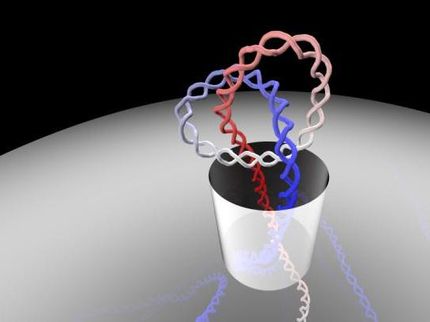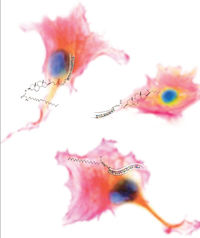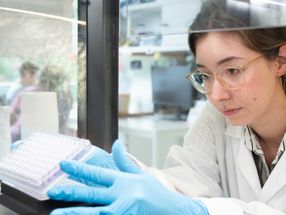Singapore Cuts Cost and Time-to-Revenue for Biomedical Sciences Companies
Singapore is an Ideal Location for Biomedical Sciences Manufacturing and R&D
Advertisement
San Francisco. A growing number of biomedical companies are setting up research operations in Singapore to take advantage of its world-class R&D environment, where state-of-the art facilities, and the availability of shared facilities and services can cut R&D costs significantly and accelerate the development timeline.
"One of the key challenges faced by biotechnology start-ups and established companies alike, is the need to manage R&D costs and bring products to the market as quickly as possible," said Dr Swan-Gin Beh, Director of the Singapore Economic Development Board (EDB)'s Biomedical Sciences Group. "We understand this and have developed our biomedical sciences strategy to help companies meet this challenge," he added.
The Biopolis, which officially opened on October 2003, is a good example of Singapore's commitment to grow the Biomedical Sciences industry. It is positioned to be the epicentre for biomedical scientific talent and research in Singapore. With close to two million square feet of laboratory space and R&D facilities, Biopolis is attracting companies and researchers from around world, and has already reached 90 per cent occupancy.
By co-locating public research institutes and private research laboratories, Biopolis will stimulate collaborative and cross-disciplinary research. This will also provide economies of scale to optimise the use of resources such as X-ray crystallography, nuclear magnetic resonance, electron microscopy, DNA sequencing and others. About 2,000 researchers will work at Biopolis when it is fully occupied and this community is expected to grow to 4,000-5,000 when the Biopolis expands in the next few years.
"We are seeing entire research teams come to Singapore, and a major reason for that is their ability to step into a lab and get started almost immediately, using brand new lab space and equipment. They get to avoid the time and cost associated with project ramp-up," said Dr Wanjin Hong, Deputy Director, Institute of Molecular and Cell Biology (IMCB). IMCB is one of the five public research institutes at Biopolis and manages many of the shared facilities there.
Strong government support and a pro-business environment benefit both international and local companies. Singapore also boasts the strongest intellectual property (IP) protection rules in the region, and was ranked as the most IP-protective country in Asia in 2003 by the Political and Economic Risk Consultancy, Ltd (PERC). The US-Singapore Free Trade Agreement (USSFTA) will bring patent registration in-line with US requirements, and the Intellectual Property Office of Singapore is dedicated to guiding creators through the process of filing for patent protection and commercialising them through new spin-off companies or industrial collaborations.
These elements combine to make Singapore the destination of choice for new research investments. Paradigm Therapeutics, a private British company using in vivo functional genomics to validate novel drug targets as well as develop assays and screens for drug discovery, has recently expanded its research capacity by adding a laboratory operation in Singapore.
"We started work in Singapore for a number of reasons, but largely because of the research-friendly environment and culture here. Not only are the facilities state-of-the-art, but we feel that the government is doing its utmost to minimise any obstacles and hindrances to biomedical research efforts. There is also an outstanding talent base and the opportunity to forge collaborative links with local firms and academic groups through our presence in the Biopolis. In addition, Singapore provides us with an excellent base to reach Asia Pacific markets," said Dr Mark Carlton, Chief Executive Officer, Paradigm Therapeutics.
With the fast-developing biomedical sciences industry in Singapore, a biotechnology trade organisation called BioSingapore was recently formed. Dr Guy Heathers, Acting Chairman, BioSingapore said: "Singapore is truly a unique environment for biomedical sciences companies, where there is a successful blend of business and research-friendly initiatives that really help companies develop innovative health solutions, but at the same time meet stringent international and local regulatory requirements that ensure the research done here is world-class, respected and credible in every market in the world. It's exciting to be a part of this, and BioSingapore looks forward to helping businesses take full advantage of what Singapore has to offer."
More Than An R&D Hub
In the area of manufacturing, Singapore continues to grow from strength to strength as a strategic location for many leading companies. In 2003, the biomedical sciences manufacturing output grew by 15.9% to reach S$11.3 billion, exceeding all growth projections.
In 2003, Merck opened their second plant for the tabletting of anti-cholesterol drug; CIBA Vision announced plans to establish a contact lens plant; Schering-Plough opened its third multi-product active ingredient facility; and Applied Biosystems announced their expansion plans for the development and manufacture of life sciences instruments in Singapore.
The Tuas Biomedical Park played an instrumental role in attracting these and other global pharmaceutical and medical technology companies to set up their manufacturing base in Singapore. With 170 hectares (420 acres) of industrial land and an additional 150 hectares (371 acres) under development, Tuas Biomedical Park is already home to manufacturing operations from companies such as Merck, Pfizer, Wyeth and CIBA Vision.
Singapore is also dedicated to advancing human healthcare. SingaporeMedicine is a multi-agency initiative by EDB's Biomedical Sciences Group, Singapore Tourism Board (STB) and International Enterprise (IE) Singapore, and aims to grow Singapore into Asia's leading destination for international patients. In 2003, there were some 212,000 medical visitors to Singapore.





























































